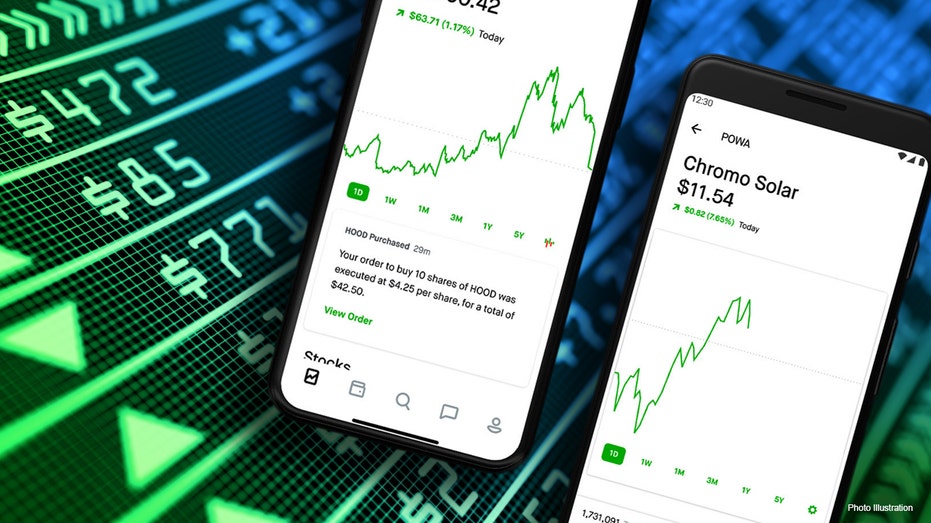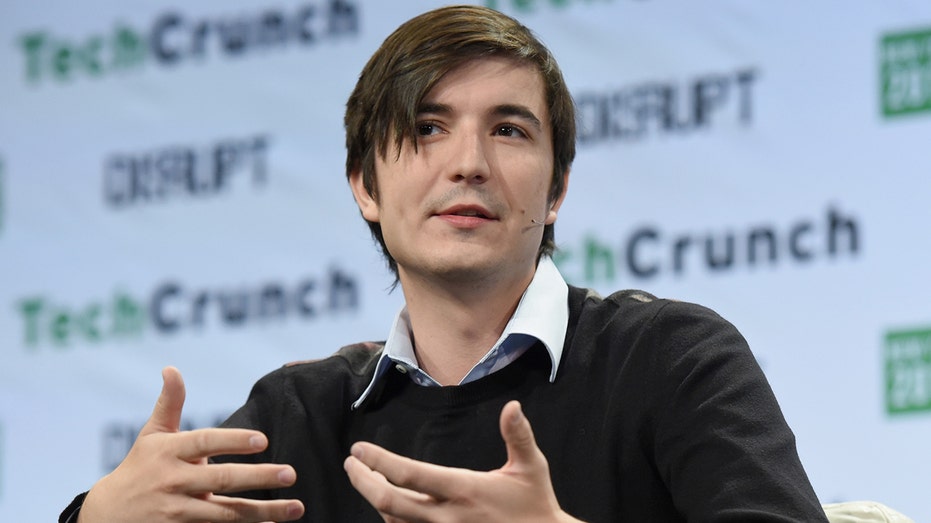After Robinhood’s IPO, twist to business model may come
Robinhood has quietly been laying groundwork to become a standalone market maker
Robinhood aims to assuage institutional investors over business model concerns by planning to match orders: Gasparino
FOX Business' Charlie Gasparino on what to expect from Robinhood's upcoming IPO and why its business model is causing concerns.
As Wall Street gears up for Robinhood’s highly-anticipated foray onto the open market, the company has quietly been laying the groundwork to become a standalone market maker, FOX Business has learned.
During its "roadshow" for its much-anticipated IPO, executives for the trading app said it’s looking to reduce its reliance on revenues from selling buy and sell orders to various market makers, a practice known as "payment for order flow," or PFOF, on Wall Street.
One way to reduce its reliance on PFOF is for Robinhood to actually match its own order flow instead of selling it to other brokers, company executives said. They even hinted during the roadshow meetings with investors that they too will be looking at getting into the business, according to people with direct knowledge of the matter. Robinhood is pricing its IPO tonight and shares are scheduled to trade Thursday on the Nasdaq Stock Market under the symbol HOOD. It plans to sell 55 million shares, and raise as much as $2.3 billion.
Robinhood declined to comment on the matter.
Robinhood was created just eight years ago by CEO Vlad Tenev and his college roommate Baiju Bhatt as a way to "democratize" the business of trading. But as user growth has soared during the pandemic lockdowns, and markets have surged because of low interest rates by the Federal Reserve, Robinhood’s business model has come under scrutiny. Regulators have accused the company of "gamifying" trading, thus making it almost too easy for its less sophisticated clientele to seamlessly trade without sufficient warnings about market risk.

As Wall Street gears up for Robinhood’s highly-anticipated foray onto the open market, the company has quietly been laying the groundwork to become a standalone market maker, FOX Business has learned. (Robinhood/istock)
Regulators are also looking at some of the other controversial ways Robinhood hauls in cash, including its reliance on payment for order flow. Payment for order flow enables Robinhood and other discount brokers like Morgan Stanley’s E*Trade and Charles Schwab to offer their customers low commission, and in Robinhood’s case, commission-free, trading.
Unlike the other discount brokers that have diversified business models, the sale of its buy and sell orders to third-party market makers is where Robinhood makes the lion share of its profits. Indeed, in its July 1 S-1 IPO filing, Robinhood conceded that 75% of its 2020 revenue was derived from PFOF and transaction rebates.
ROBINHOOD'S IPO: FIVE FACTS ABOUT THE TRADING APP
The PFOF practice was masterminded by the late Ponzi scheme king Bernie Madoff, and it has been a source of controversy among brokers and traders for years because some traders say it gives an unfair information advantage to market makers when they execute their own trades. The market makers can see where retail investors are pushing stocks, and adjust their trading strategies accordingly.
The biggest PFOF firms deny that they front-run trades and say they are required by law to provide brokerages like Robinhood best execution on their order flow; they make their money by skimming the tiny bid-ask spreads on stocks they match, which is perfectly legal.

Robinhood was created just eight years ago by CEO Vlad Tenev, pictured, and his college roommate Baiju Bhatt as a way to "democratize" the business of trading. (Noam Galai/Getty Images for TechCrunch)
ROBINHOOD GIVES FOUNDERS SECOND CHANCE AT $1.4 BILLION WINDFALL
The so-called meme stock frenzy earlier in the year highlighted the practice and possibly how some market makers could take advantage of investors. Robinhood’s IPO comes as Securities and Exchange Commission Chair Gary Gensler has indicated that he wants to regulate the practice, which could reduce Robinhood’s main source of revenues. In recent weeks, some large investors said they might sit out the company’s IPO because of this regulatory risk.
Robinhood’s revenues have more than tripled from 2019 to the end of 2020 to $958 million, but the company still posted an operating loss of $1.44 billion in the first quarter of 2021.
"I spent a lifetime in the brokerage business where rebates or kickbacks were illegal, so as far as I am concerned it is a flawed business premise," said Teddy Weisberg, founder of Seaport Securities, a brokerage firm that trades on the floor of the New York Stock Exchange. "It flies in the face of ‘best execution,’ as mandated by regulators."
Robinhood cited revenue concerns over payment for order flow regulations in recent its S-1 filing. "Changes in our business relationships with market makers and any new regulation of, or any bans on, (payment for order flow) and similar practices may result in reduced profitability, increased compliance costs and expanded potential for negative publicity," it disclosed.
GET FOX BUSINESS ON THE GO BY CLICKING HERE
If Robinhood did enter the market-making business it would be competing with established players such as Virtue Financial and Citadel Securities. It’s unclear if other brokerages would be willing to sell its order flow to Robinhood since they’re already competitors on the discount brokerage side. Robinhood, however, could make money "internalizing" its order flow by skimming fractions of a penny on the bid-and-ask spread of stocks it matches.
But that also assumes that it can easily match trades in a business that is also under regulatory review. "This won’t be easy," said one Wall Street brokerage analyst. "The reason why Virtue and Citadel dominate this market is because they match trades for all the discount brokerage firms so they can get the best execution."




















